Inaugural Session
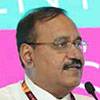
M. Sivakumar
Chief Executive Officer
ICT Academy
Today’s theme is Augmenting Skills and Accelerating Growth. Augmenting Skills is connecting the skills of individuals in a unit to drastically increase their strength and empower them to perform in a larger realm in an effective as well as efficient manner. Acceleration of growth will happen when we get out of the comfort zone to explore new avenues. But, the timely decision to accelerate and the collective maneuver to diligently apply the acceleration plays a crucial role in succeeding in the exercise.
ICT Academy is a profound example of such augmentation of Skills and acceleration of growth. As we are a not-for-profit organization, we do not have a capital. Yet, we have successfully conducted ourselves for the past 10+ years by strategically connecting our skills and by diligently monitoring our progress to make timely decisions for accelerating our progress. To accomplish all this it is not only money that is the input but also an equal share of passion.
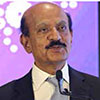
BVR Mohan Reddy
Founder and Executive Chairman
Cyient
In response to AICTE’s request to draw a prospective plan for Technical Education in India, I drew a short term plan. The study revealed that India offers 17 lakh undergraduate and postgraduate seats each year against the annual job opening of 9 lakhs. Also, the quality of the graduates is not commendable as the quality of teaching lacks efficiency; so, the methodology of the pedagogy has to be refined and if necessary redesigned to generate good-quality students.
Further, Industry-Institute interaction should be nurtured to have both the bodies aligned in real-time. The decision-makers of Institutes should involve at least a couple of Industrialists to sit on their Board to have a reality check on the decisions made and the education imparted. This shall certainly add the immediate skill requisites to the curriculum and bridge the gap between acquired knowledge and expected performance. Thus, by augmenting skills we can accelerate the growth of the nation.
Industry Keynote Session on “Learning for the Augmented Age”
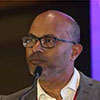
T. Sharath Babu
Director - Product Development
Oracle
It is a fact that teaching is a noble profession, because teaching is the process to prepare the next generation of skilled professionals and workers. This implies that skill development lies much in the hands of the teachers primarily necessitating the development of the teachers’ skills, which eventually would spark the development of the students’ skills. The subjects of interest for improving the skill sets of students should focus on the current industrial trends of achieving the ‘5 trillion dollar economy’, complying with the changing regulatory requirements, delivering quality education in line with the changing technology requirements, and competing/surviving the AI revolution.
As the duration of the change cycle is reducing by each turn, accelerating the process of equipping the workforce to handle the nuances of change is the mandatory need of the hour. The timely augmentation of the skills of the students shall increase the industrial growth accelerators namely, productivity, scalability, and innovative tenacity.
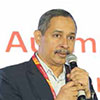
Santosh Nagarajan
Associate Director – Leadership Development
Virtusa
Rather than talking on imparting skills, I’m going to talk about seeking knowledge and learning skills, because more than the technology, the proficiency of the person behind the machine, that is, the person handling the technology really matters. The facts and concepts imparted by the educational institutions fill the students with knowledge. But, only the acquisition of technical skills, conceptual skills, design skills, and human skills realize the application of the knowledge thus gained.
In all this, what matters today is the agility with which a student could learn the skills and be equipped to take on the responsibilities of the industry. Such agility depends on the Intelligence Quotient (IQ), Emotional Quotient (EQ), Passion Quotient (PQ), and the Curiosity Quotient (CQ) of the student. Educational institutions should increase the PQ and CQ in the students to elevate his/her IQ to help them learn quickly and stay relevant to what the world asks of them.
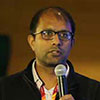
Pundi Sriram
Business Head
STEP - The Hindu Group
The world is changing with the advent of the Big Data, mobility, teacherless training, intelligent assessments and multisensory learning happening around has been presenting a very high degree of personalization. Today, technology is at the table already and everybody goes through the process of learning it.
However, there are skills like complex problem solving, emotional intelligence, coordinating with others, critical thinking, cognitive flexibility, judgment and decision making, creativity, negotiation and people management. Out of all the skills arrayed afore, cognitive flexibility is the most sought after skill in an ever-changing workplace scenario. To develop cognitive flexibility a strong foundation in the English language is imperative.
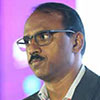
Sriniwas CR
Director - Human Resources
Accenture
We are all part of the transformational journey that we call the 4th industrial revolution. The crucial requisite to live through this revolution is the constant thinking that would inspire the people around us to do things differently to cope up with the change. To make this possible, first, we have to understand the buzz words like, Digitization, Automation, Mobilization, Augmentation, etc. at least in the way that we could personally relate to it.
The way that we work would not be the same always and the jobs that we have today may not even exist shortly. To handle the situation we have to sharpen our Hard Skills – the skills that are objective, measurable and can be listed on a Resume, and Soft Skills – the skills that are person-specific, subjective, immeasurable, and acquired over time; doing so we shall drive the change rather than being driven by the change.
Industry Keynote Session on “Strategies to Augment the Skills Revolution”
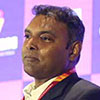
Sriram SR
Director & Head - Human Resources
Arcesium
The ultimate goal of skill development is to make individuals succeed in their endeavours. To accomplish this, future technology should focus on success rather than just technology or domain. We need to shift our focus from imparting knowledge to real-time skill application and make learning more holistic. Individuals should be guided to discover and pursue what they are good at.
So, educational institutions should broaden their evaluation parameters by shedding more light on success skills, because success skills last for a lifetime and can take on any change irrespective of its sustainable tenure. Further, the institutions should drift from theory to application by encouraging the practical application of knowledge like increasing participation in labs and related work. Thus, by identifying the potentials of people and guiding those to specialize in the stream of their interest shall help them have a long and happy career. This is the ultimate manner in which skills could be developed and growth accelerated.
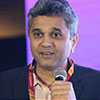
Ram Pappu
Programme Director - Mission Samriddhi
Intellect Design Arena
We at Mission Samriddhi use Design Thinking to bring about far-reaching sustainable change in our country. I’m here to pitch how we could use Design Thinking to create a career for the rural youth out of social transformation. Trivial aspects in the society that require certain skillset to be addressed have to be identified and the Youth can be trained to acquire that particular set of skills, which could be applied appropriately to bridge the gap as well as earn a career.
For example, with the benefit of an App, youth are trained to earn 10,000 to 11,000 Rupees a month by testing the basic physical parameters of rural people. If we, in partnership with ICT Academy, could create a certificate program that is spread over the 2nd and 3rd years of college education we could create professionals who could reap the best benefits of the numerous start-ups that have come to existence due to new Governmental policies.

Sirisha Poondla
Director - Human Resource & Talent
SAP Callidus Cloud
There is a huge gap between what is expected and what is being delivered. Only 45.6% of the youth that are graduating from educational institutions are employable, 95% of engineering graduates cannot code, and 93% of management graduates are unemployable. This has to be changed and everybody in this room is responsible for it. The most important thing that has to be applied is the exposure to faculty, for they are the ones who give day to day advice to the students on an hourly basis.
Students should be encouraged to develop their own ideas and prototypes rather than sitting through sessions to ingest existing aspects and do projects that are just copy and paste. Communication skills in English by ensuring conversations in English have to be promoted to enable the students to present their work before the international community. Moreover the students should also be guided to understand the scope of streams of engineering other than IT.
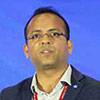
Amit Sahoo
Senior Director – Human Resources
Cigniti Technologies
Human beings were initially hunters and then agriculturists for several thousand years. This was followed by industrial revolution, and then came in the Information Age with internet happening for the next 20 years. Now it is the augmented age, the future. The future, the students have to be nurtured into creativity by encouraging them to acquire multiple skills.
By changing routine we can develop cognitive innovation. Volunteering into unexplored ventures and trying out new extracurricular activities can open us to new experiences. Dare to think differently to identify new uses for existing material that are purposed for a different solution. Break free from the luxury of gadgets and try doing things the old fashioned way. We should combine career interest and acquired skills as follows: low interest+lowskills = avoid; high skills + low interest = explore; high interest + low skills = develop; and high skills+ high interest = pursue.

Dr. Narasimha Reddy
Executive Director
Sreenidhi Institute of Science and Technology
Mr. BVR Mohan Reddy stressed the importance of faculty training for the evolution of education to suit the industry requirements. Mr Sharath Babu asserted the need for equally prioritizing the inculcation of soft skills along with technical knowledge. Mr Santosh disclosed how the Passion Quotient is more important than the Intelligence Quotient and the Emotion Quotient. Mr Sriniwas told that the institutes should give more scope for the development of soft skills. Mr. Ram Pappu gave a new academic model and we seek his guidance to integrate it with the curriculum. Ms. Sirisha Poondla gave the statistics to disclose the present and actual scenario of the types of job-oriented training. Mr. Sahoo gave many illustrations that enlivened the gathering.
As I observe, the advent of ICT Academy has covered the theoretical aspect of the technological deficit to a great extent. Only if the institution and the industry work in tandem, we could have results that would accelerate growth.